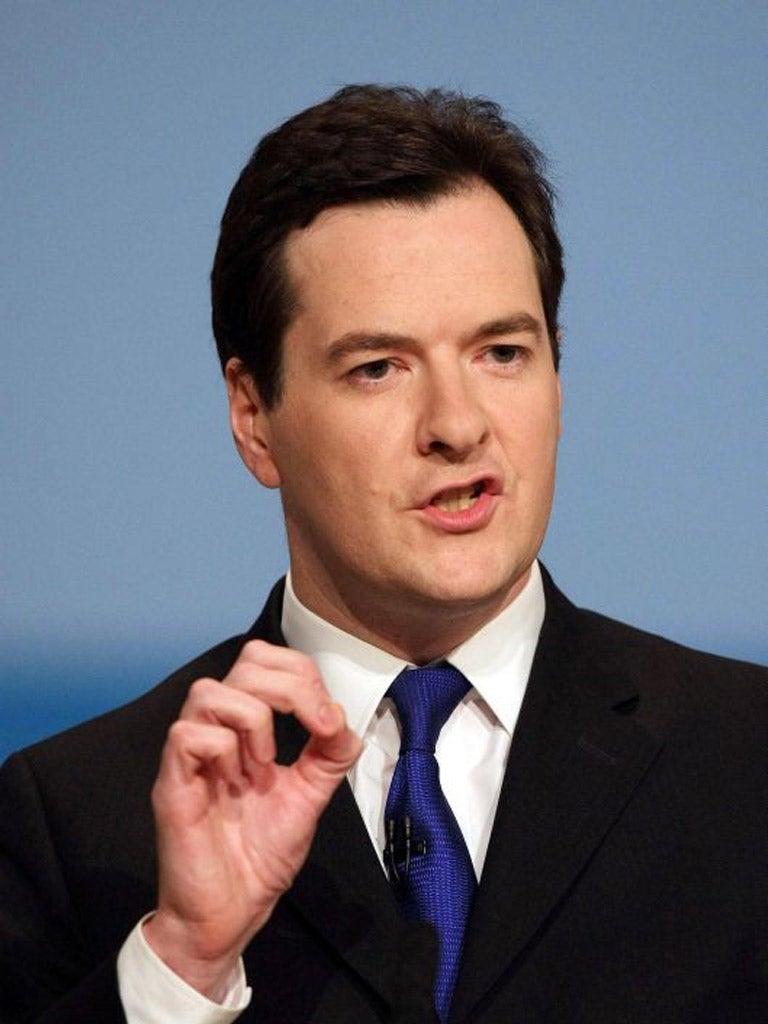
The basic state pension could be taxed at source under a proposal that would fuel the pensioners' revolt against the "granny tax" announced in last month's Budget.
The state pension, which rises from £102.15 to £107.45 a week today, is taxable but it is currently paid without tax being deducted immediately. Under the plan, which would force many pensioners to change the way they plan their household budgets, it would be subject to the 20 per cent basic tax rate at source, reducing it to £85.96 a week for millions. Wealthier pensioners on the 40 per cent tax rate would receive £64.47 a week.
The reform is being considered by the Treasury's tax advisers, who will report to George Osborne later this year in time for him to include any changes in next year's Budget.
In an interview with The Independent, John Whiting, tax director of the Office of Tax Simplification (OTS), said the question of whether to bring the state pension into the pay-as-you-earn system was "the front-runner" for its inquiry into how to streamline the tax system for pensioners.
Although supporters of the idea insist pensioners would be no worse off over time, Mr Whiting admitted it would cause "cash-flow issues" for some pensioners. He said the OTS would also consider the administrative cost for the Department of Work and Pensions (DWP) of putting Britain's 12 million pensioners on PAYE. About 5.6 million of them pay tax, while the rest have an income below the tax-free threshold –currently £10,500 for 65- to 74-year-olds and £10,660 for those 75 and over.
Surveys show that only four in 10 elderly people know the state pension is taxable and many discover it only when HM Revenue and Customs (HMRC) tries to claw back the tax they owe later. Some get into debt and are unable to pay.
Mr Whiting said: "There is poor liaison between the DWP and HMRC, so tax on your state pension has to be captured by fiddling with your tax code. One result is that a lot of pensioners [1.6 million] get drawn into self-assessment, filling in forms, mistakes are made and it is a big source of problems.
"The obvious solution is to apply PAYE to the state pension. DWP would become like another pension provider [by paying pensions net of tax]. There is potential for better explanation and better information flow, more joined-up payments and less chance of errors. Fewer pensioners would end up filling out tax returns."
Pensioners' groups, already seething over the Chancellor's freeze in age-related allowances, warned that the latest proposal would be seen as a "mark two granny tax". The National Pensioners Convention said that, rather than tax payments at source, the Government should exempt the state pension from tax altogether.
Neil Duncan-Jordan, its spokesman, said: "It would just create another hurdle for pensioners. It is totally unnecessary. Pensioners are feeling persecuted. It is just not the case that they have escaped the austerity measures."
He said his group had been contacted by a number of Conservative supporters saying they would never vote for the party again because of the freeze in allowances. Deducting tax at source would make the freeze "a lot worse".
In a setback for the Chancellor, Mr Whiting dismissed as "not 100 per cent accurate" claims by Treasury sources that the OTS had recommended freezing pensioners' tax allowances. He said this was only one of 12 options being considered during the OTS inquiry and that no conclusions had been reached.
Asked if he was frustrated that Mr Osborne had jumped the gun when the OTS was halfway through its inquiry, he said: "You have to be slightly philosophical. It is clearly up to ministers what they wish to do with it."
Pensioners will stage a mass lobby of Parliament on 19 April, when Labour will force a Commons vote on the £3bn "granny tax". A petition opposing the move, which will cost 4.4 million old people up to £323, has attracted almost 60,000 signatures.
Ed Balls, the shadow Chancellor, said: "Next year, the 'granny tax' will leave 4.5 million pensioners £83 worse off on average. It's not right and it's not fair."
In an interim report last month, the OTS said: "All state pensions would need to be within the scope of PAYE, but many would naturally fall out of tax with personal allowances exceeding pension income. The cost implication of operating PAYE on the state pension in certain cases might therefore be offset to some extent by the reduced cost of administering self-assessment for those same pensioners."
Some 47,000 people whose state pension is their only source of income currently have to file a self-assessment return each year.
Pension payments case study
Bill, 66, has state pension income of £221.15 a week and receives a £25-a-month pension from his former employer. His total income in the 2011-12 financial year was £11,800.
He is entitled to an age-related personal allowance of £9,940, so £1,860 of his income is taxed at 20 per cent, leaving him £372 to pay. Under the current system, £150 is deducted from his private pension but £222 is collected under self-assessment.
If PAYE operated on his state pension, he would not have to fill in a self-assessment tax return because all his income would be taxed at source. He would not have to set aside funds to pay his tax liability on 31 January following the tax year, as he currently does under self-assessment.
Source: Office of Tax Simplification
Join our commenting forum
Join thought-provoking conversations, follow other Independent readers and see their replies
Comments